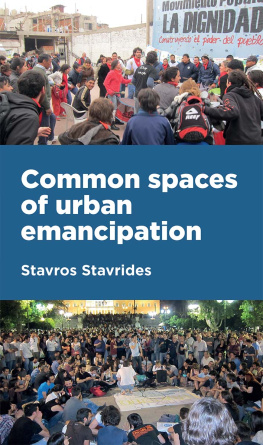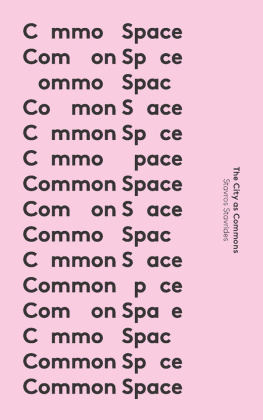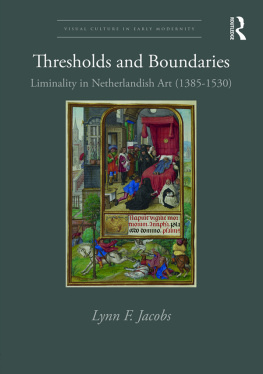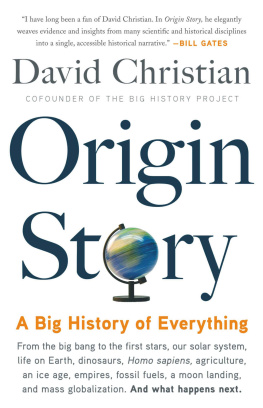
Advance Praise
Through a careful reading of urban struggles and by putting social and urban theory in the service of the most profound questions of collective transformation, Stavros Stavrides demonstrates the spaces of possibility present in our cities and our daily lives.
Silvia Federici, author of Caliban and the Witch and Revolution at Point Zero: Housework, Reproduction and Feminist Struggle
Grabbing back for the common the spaces taken by capital and the State, which aims to turn them into spaces of order for their various operations, is one of the main achievements of the social movements of the urban peripheries. Thus, these movements not only place limits on the accumulation of capital and power by the 1 percent, but they turn the territories of the common into territories in resistance, a process that Stravros Stavrides knows and analyzes in depth, from a view that places the tension for emancipation at the center of his reflections.
Ral Zibechi, author of Dispersing Power: Social Movements as Anti-State Forces and Territories in Resistance: A Cartography of Latin American Social Movements
Threshold spaces are like portals to new dimensions of sociality and doing, in which subjective experience is enriched by being part of a collective emergent process that pulverizes hierarchies and restores joy and hope into the territory. In this insightful book, Stavros Stavides pushes us to think of the modern city as having many immanent heterotopic threshold spaces which could be bridged to expand the commons and challenge the despotism of late neoliberal urban crises. A must read for organizers, intellectuals, and revelers worldwide.
Massimo DeAngelis, author of Omnia Sunt Communia: On the Commons and the Transformation to Postcapitalism and Beginning of History: Value Struggles and Global Capital
Combining innovative theoretical arguments with the concrete spatial sensibility of an architect, Stavros Stavrides shows us how people are breaking down urban barriers and opening the city to new and exciting interactions. This book teaches us how to make the metropolis into a common space.
Michael Hardt, coauthor of Assembly and Commonwealth with Antonio Negri
In a sense, Towards the City of Thresholds has already crossed a threshold: the threshold between us sensing the emancipatory potential of cities and actually realizing this. Through these dark hours of counter-revolutionary waves crashing onto our cities and communities the world over, it is imperative to keep this message alive: that a common world of liberation is still within reach. Towards the City of Thresholds is a must-read.
Antonis Vradis, coauthor of New Borders: Migration, Hotspots and the European Superstate and Athens and the War on Public Space: Tracing a City in Crisis
Towards the City of Thresholds
Stavros Stavrides
Towards the City of Thresholds
Stavros Stavrides
This edition 2019 Common Notions
This work is licensed under the Creative Commons Attribution-NonCommercial-ShareAlike 3.0 Unported License. To view a copy of this license, visit creativecommons.org/licenses/by-nc-sa/3.0/.
ISBN: 978-1-942173-09-0
LCCN: 2019936532
Common Notions
c/o Interference Archive
314 7th Street
Brooklyn, NY 11215
www.commonnotions.org
Design and typesetting by Morgan Buck and Josh MacPhee
Antumbra Design | www.antumbradesign.org
Special thanks to Andrea Mubi Brighenti and professionaldreamers of Italy, publishers of an earlier edition of Towards the City of Thresholds which inspired this expanded edition.
professionaldreamers is a small, independent publisher that collects and promotes essays on space and society (www.professionaldreamers.net).
Printed in the USA on acid-free, recycle paper
Contents
Illustrations
.
.
.
.
.
.
.
.
.
.
.
.
.
.
.
.
.
.
.
.
.
.
Acknowledgements
The idea of a city of thresholds has been central to my research and involvement with urban movements for many years. Appearing sometimes as an inspiring image or promising concept, this idea has sustained a probably ambiguous, always precarious, and undoubtedly unfinished effort to think about the emancipatory potential of existing, emergent, and possible spaces.
This book aims to expose important facets of a theoretical argument in the making. Parts I, II, and III comprise the book as it was first published by professionaldreamers in 2010. Part IV includes three more recent texts that serve to connect my work on urban commons developed in Common Space: The City as Commons (Zed Books, 2016) and Common Spaces of Urban Emancipation (Manchester University Press, 2019). They indicate how my ideas about the social meaning of thresholds can be integrated with a theorizing of urban commons that understands commoning as a threshold-creating process.
contains selections from a paper presented at the Seminars of the Aegean (Organized by NTUA, AUTH and Harokopio University at Naxos, 2003). A reworked version was published as part of the book Suspended Spaces of Alterity (Athens: Alexandria, 2010). For the present publication the text has been further developed.
contains parts of two texts published in the corresponding catalogues of the Greek participation in the International Exhibition of Architecture Venice Biennale: 10th Exhibition, 2006 (Living in Exile in the Archipelago) and 11th Exhibition, 2008 (Inhabiting Rhythms).
contains parts of a paper presented at the Living in a Material World Conference (Brighton, UK 2001) and published in the short-lived e-journal Journal of Psychogeography and Urban Research, which is unfortunately no longer accessible.
is a revised and developed version of a chapter of my book From the City-as-Screen to the City-as-Stage (Athens: Ellinika Grammata, 2002). The chapters title is Distance as a condition and means of approach.
is based on a paper published in Utopia 72 (2006) as The space of order and heterotopias: Foucault as a geographer of otherness.
is a revised version of a chapter of my book Suspended Spaces of Alterity, originally titled Following the traces of a heterotopia: in Zapatista Chiapas.
.
, Squares in Movement, originally appeared in South Atlantic Quarterly 111(3), Summer 2012. Special thanks to Michael Hardt for granting permission to publish it here.
is based on the afterword to conference proceedings I wrote for Crisis-Scapes: Athens and Beyond, May 910, 2014.
is a revised version of On Urban Commoning in Make_Shift City: Renegotiating the Urban Commons (Berlin: Jovis Verlag, 2014). Special thanks to the editor and publisher for their permission to include this essay here.
The books main ideas were and are still being tested in both academic and activist environments. I owe a lot to my students in the postgraduate course Experience, Representation and Meaning of Space that I have been organizing for the last eight years. The remarks and criticisms of my students have always been inspiring.










